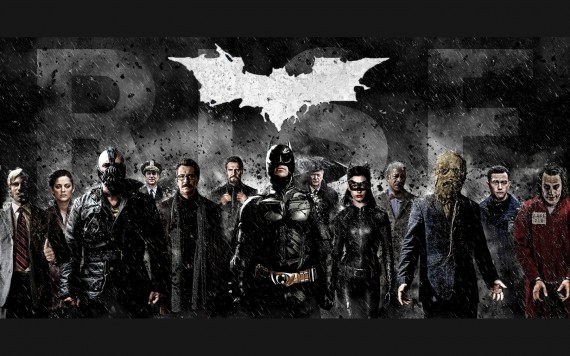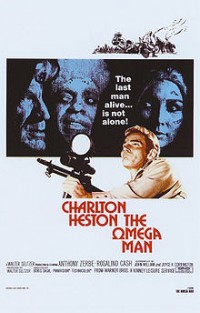Okay, that’s a bit much. How about, everything we think about genre films matters less than it used to? And that’s a good thing.
 Here’s some context: Since the 1970s big-budget genre filmmaking has become the staple of modern American filmmaking. They take up tremendous amounts of studio budgets and account for tremendous amounts of annual revenues. They are tent-poles, providing shelter for everything that won’t make quite as much money. As Anita Elberse has explained in some detail, the growing revenues from these tent-poles (prodded along, it must be said, by ‘premium’ ticket pricing for 3D, IMAX and other enhancements to the movie going experience) suggest that this practice—rather than the small minded focus many like to describe it as—is in fact the best (if not only) method for studios to increase its revenues from a rapidly splintering base.
Here’s some context: Since the 1970s big-budget genre filmmaking has become the staple of modern American filmmaking. They take up tremendous amounts of studio budgets and account for tremendous amounts of annual revenues. They are tent-poles, providing shelter for everything that won’t make quite as much money. As Anita Elberse has explained in some detail, the growing revenues from these tent-poles (prodded along, it must be said, by ‘premium’ ticket pricing for 3D, IMAX and other enhancements to the movie going experience) suggest that this practice—rather than the small minded focus many like to describe it as—is in fact the best (if not only) method for studios to increase its revenues from a rapidly splintering base.
That has been a good thing for genre fans, incentivizing studios to make ever bigger and more ambitious fantasy and science fiction films because they have to: genre has been keeping them afloat since the first dinosaurs romped across Isla Nublar.  Sure, not all of them are very good—distribution of quality is usually a bell curve in any mass art form—but some of them were great, and they made money.
Sure, not all of them are very good—distribution of quality is usually a bell curve in any mass art form—but some of them were great, and they made money.
And most of that money was made in the US. Historically two-thirds of a films box-office take (or more) would come from American coffers, with any extra from over-seas a bonus. Which means American genre fans had quite a bit of leverage over what was made and what was successful. Genre film became the last great American export.
As with all things, nothing is static. Over the last fifteen years the rapid growth of other regions, particularly China but also Latin America and even parts of Europe, has seen that power structure flip. In 1997 when TITANIC became the highest grossing film of all time, the bulk of those ticket sales came from America. In 2009 when AVATAR surpassed it, most of those revenues came from overseas, and that has become the  standard ever since.
standard ever since.
It’s not a huge surprise, many types of storytelling (comedy and drama especially) does not cross borders very well: it often requires too much cultural context to be effective. Big budget genre films don’t generally have those problems, partly because of their frequently more visually rich nature and partly because they often create and explain their own cultural context within themselves rather than relying on a given context (and thereby assuming the audience is familiar with it).
But it has also flipped the power structure for reacting to the quality of a film or film series. The only voting business cares for is voting with the wallet. As America went on films, so went the rest of the world—and considering these giant films did (and mostly still do) originate here, that mattered because it ultimately decided on the content of the films produced. When the studios decided a campy, be-nippled version of Batman was what audiences wanted, it was easy to explain the error of their ways to them. The result of that back and forth was ultimately THE DARK KNIGHT TRILOGY and as genre fans we’re all the better for it.

 Compare that reality to another recent initially successful superhero film series which has gone through a series of bumpy interludes. After record-breaking opening weekend of the first SPIDER-MAN film in 2002, and the glory of SPIDER-MAN 2, the series has fallen on increasingly hard times with both fan and critical opinion declining, the most recent iteration being the most disliked and the lowest grossing on US shores. Once upon a time this would have forced executives to take a look at what they were doing and come up with a new approach.
Compare that reality to another recent initially successful superhero film series which has gone through a series of bumpy interludes. After record-breaking opening weekend of the first SPIDER-MAN film in 2002, and the glory of SPIDER-MAN 2, the series has fallen on increasingly hard times with both fan and critical opinion declining, the most recent iteration being the most disliked and the lowest grossing on US shores. Once upon a time this would have forced executives to take a look at what they were doing and come up with a new approach.
However, because of the growth in oversees viewers, each SPIDER-MAN film has actually grossed about the same as the previous one, giving Sony no reason to make any changes in reaction to genre fans dissatisfaction about the course it has followed. The same for TRANSFORMERS or several other less than adequate film series, leaving them to continue on and on and on.
 This isn’t necessarily a bad thing, merely a new thing – genre film is undergoing a transformation and old time fans are going to have to go along for the ride. This will send some ideas looking for outlets, which once might have found a space on the big screen, looking for other channels: web series, comics, television. Television in particular has begun to appropriate the old American oriented genre filmmaking milieu for itself, and in the process we have seen some of the greatest modern genre success there rather than on the big screen—THE WALKING DEAD, GAME OF THRONES—and more importantly with network television finally taking similar plunges (24: LIVE ANOTHER DAY, EXTANT, HEROES).
This isn’t necessarily a bad thing, merely a new thing – genre film is undergoing a transformation and old time fans are going to have to go along for the ride. This will send some ideas looking for outlets, which once might have found a space on the big screen, looking for other channels: web series, comics, television. Television in particular has begun to appropriate the old American oriented genre filmmaking milieu for itself, and in the process we have seen some of the greatest modern genre success there rather than on the big screen—THE WALKING DEAD, GAME OF THRONES—and more importantly with network television finally taking similar plunges (24: LIVE ANOTHER DAY, EXTANT, HEROES).
Change is the nature of things and there’s no telling what will come out of the new paradigm we’re entering, but it will be interesting to see where it leads.
















1 Comment